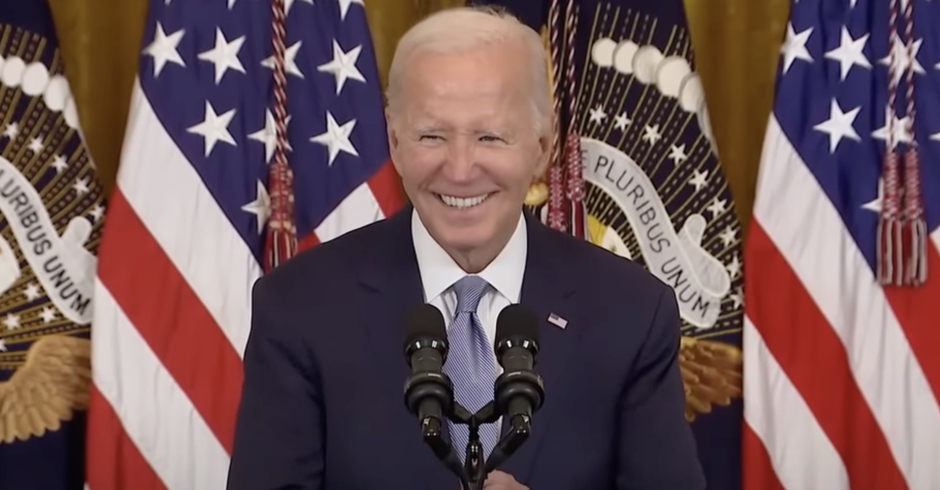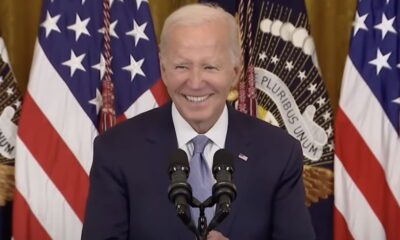DADT: Goodbye Don’t Ask Don’t Tell, Hello To A New Civil Rights Movement
When Tanya Domi joined the Women’s Army Corps 37 years ago as a “slick sleeve” Private in 1974, she had no idea how the “Gay Ban” military policy which preceded “Don’t Ask, Don’t Tell ” by 52 years would affect her life. Its ultimate repeal, fought successfully by a new generation of veterans and activists marks the beginning of a new civil rights movement in America.Â
Today is a special day in American history. Indeed, the repeal of the “Don’t Ask, Don’t Tell” law marks a major advancement in America’s political compact to create a “more perfect union” by extending the right to gays and lesbians to serve openly in the military. As of this morning at 12:01 a.m. in all time zones across the planet, for the first time in the 235 years since the U.S. Military was established, gays may serve openly in uniform without fear of discharge.
I would have never imagined how much the gay ban in the military would affect my life when I enlisted in the Women’s Army Corps in 1974 (I was not out to myself, let alone to anyone else when I enlisted.) The gay ban, most recently known as DADT, which became law in 1993, became a part of my daily venacular since that day in 1974 when I was called into a dark investigator’s office at Ft. Devens, Massachusetts, was read my Miranda rights and was charged with the crime of “homosexuality,” following an innocent first visit to a gay bar in Boston.
By the time the Ft. Devens witchhunt for lesbians took place in the mid-1970s, the American government had officially discriminated against gays and lesbians who served in the military for 33 years, a practice initiated by psychiatrists who had pathologized homosexuality in a new policy created to actively exclude them from the ranks (see Coming Out Under Fire, by Alan Berube) as America launched a draft effort that would brings millions of Americans into uniform during World War II.
Most recently, the American media–populated by lazy journalists–have regularly portrayed DADT absent the factual history of an American government that has viciously pursued homosexuals in the ranks for more than two centuries. Since the days of General George Washington and the Continental Army, the American government had been meting out punishments to homosexuals. Under Washington, homosexuals were “drummed out” and tarred and feathered, and court martialed. Later, homosexuals were imprisoned for sodomy, delivered sentencing that included hard labor in maximum security prisons, or imprisoned in Navy brigs, which included the added indignity of being fed “bread and water.” Others were given nonjudicial punishment that resulted in the reduction of rank, and issuance of life-altering derogatory discharges that were characterized as “other than honorable,” “bad conduct,” and even, “dishonorable and psychiatric discharges.” Most recently, policy migrated to applying financial penalties which began under President George H. W. Bush in 1991, which applied a 50 percent reduction in benefits, not withstanding the receipt of an honorable discharge.
Today, as the bells of freedom ring across America for lesbian, gay, bisexual (but NOT trans persons) in the military, the sky won’t fall, gay marches will not ensue on military bases (although, why not?) gays in uniforms will not mob barracks or officer clubs in flaunting flamingo dances, ultimately belying the unfounded red-herring claims of wild-eyed, virulently anti-gay activist Elaine Donnelly. (Could we be so lucky that Donnelly will recede into history too?)
Indeed, while many across America today will celebrate this great moment, a new generation of LGBTQ activists, dominated by the “Millenials,” will mark this victory by taking to the streets in dozens of actions across the country, to illuminate the vast inequality of LGBT Americans under federal civil law, led by GetEQUAL, a national organization dedicated to applying the principles of nonviolent civil disobedience. GetEQUAL played a decisive role in the demise of DADT when a number of activists–including Iraq war veteran Lt. Dan Choi– chained themselves to the White House fence, bringing a new image to the face of discrimination in America and no doubt, caused consternation within the Obama White House.
GetEQUAL arrived on the national scene during the most recent battle to take down “Don’t Ask, Don’t Tell,” emerging to play a classic activist, outsider role, and, while sometimes disconcerting to mainstream groups such as the Human Rights Campaign (HRC), gave the DADT repeal effort the necessary political pressure to finally repeal legalized discrimination in the military.
GetEQUAL did not come out of “nowhere,” it was founded by a number of people, most prominently its director Robin McGehee.
McGehee, a lesbian and mother of two from Mississippi, had moved to Fresno, and became a co-director of the National Equality March and the Meet in the Middle March 4 Equality of 2009. She, along with many others, was radicalized by California voters who in November 2008 supported Proposition 8, overturning marriage equality for lesbians and gays by way of a constitutional amendment banning marriage between same-sex partners, reversing the California Supreme Court’s 2008 decision.
McGehee repeatedly says, she would rather spend time with her family than take on this fight for equality, but because she knows that discrimination must be challenged, she has stepped forward in very brave and decisive ways, emerging as one of America’s top leaders in the LGBTQ civil rights movement today.
In August, McGehee, along with Heather Cronk, the managing director of GetEQUAL, brought 92 activists from 25 states and the District of Columbia together in Memphis, Tennessee for a national meeting and training to discuss how the LGBTQ activist community can move forward in a nationally strategic and tactical manner that will advance our new civil rights movement toward full federal equality. Cronk a community activist, with superlative management and organizing skills, put together the training in collaboration with United We Dream immigration activists and community organizers, working and planning together in an unprecedented manner to advance the rights of the LGBTQ community. In Memphis, McGehee called on activists to take bold action around the country and put pressure on elected officials from California to Maine. Today, that plan and those actions are happening in 12 different locations across the country.
At the stroke of midnight today, McGehee tweeted, “Deep love & respect to ALL individuals & orgs who helped take us another step closer to = “.  GetEQUAL understands that we can’t achieve equality through one strategy alone–we must work together as a civil rights movement and use all political sticks and carrots to move our equality agenda forward and not leave anyone behind in a community that should and can be lead by principled leadership at all levels of activism.
Let me raise a flag and plant one too:Â I joined GetEQUAL’s board recently because I don’t choose to wait another 40 years to achieve federal equality for LGBT people. I want to see and experience full federal equality in my lifetime. Watching GetEQUAL take on the Obama Administration’s double talk and delay tactics made me a true believer in bringing back principled non-violent civil disobedience as a legitimate tool in organizing for equality. That stick disappeared when ActUp! faded from the scene in the 1990s. GetEQUAL has replaced it at a vital moment in our history.
So as we shift from “Don’t Ask, Don’t Tell” to expand our civil rights further, including trans rights in the military, my personal life involves a loving commitment to my Canadian partner, whom I have been with for nearly the past six years. We met and fell in love in New York City, our home. Under the NAFTA trade agreement my partner can legally work in America, but she does not have the right to permanent resident status through her work permit alone. These work permits are approved for three-year periods and must be renewed in order for her to remain in New York City. Because of DOMA, our relationship does not qualify for immigration status entitling her to live and work freely in the United States on a permanent basis.
In the new post-repeal military, I do believe that its leadership will not be exactly comfortable with the inequality of our gay families’ lives who are on active duty. To be denied housing and health care benefits because of DOMA, soldiers will sadly worry, for good reason, about the well-being of their families, thus distracting them from the mission at hand. This inequality will come into stark relief during the course of regular military life and ultimately, that unfairness delivered by the hands of DOMA, must face the glaring spotlight that we activists must directly expose.
This is a happy day for some of us in our community, but none of us should ever be satisfied or complacent with progress for one part of the community. GetEQUAL is going to be around to remind not only the community, but the rest of country, that we are not equal until all of us become fully equal under America’s laws.
Let me leave you with the words of the poet Langston Hughes wrote in “Democracy”:
I tire so of hearing people say,Â
Let things take their course.
Tomorrow is another day.
I do not need my freedom when I’m dead.
I cannot live on tomorrow’s bread.
Freedom
Is a strong seed
Planted
In a great need.
There is a great need for more equality. We are not done. We are not finished, until we are all equal together as one. Meet you at the barricades until we GetEQUAL.
Â
Â
 Tanya L. Domi is an Adjunct Assistant Professor of International and Public Affairs at Columbia University who teaches about human rights in Eurasia and is a Harriman Institute affiliated faculty member. Prior to teaching at Columbia, Domi worked internationally for more than a decade on issues related to democratic transitional development, including political and media development, human rights, gender issues, sex trafficking, and media freedom.
Tanya L. Domi is an Adjunct Assistant Professor of International and Public Affairs at Columbia University who teaches about human rights in Eurasia and is a Harriman Institute affiliated faculty member. Prior to teaching at Columbia, Domi worked internationally for more than a decade on issues related to democratic transitional development, including political and media development, human rights, gender issues, sex trafficking, and media freedom.

Enjoy this piece?
… then let us make a small request. The New Civil Rights Movement depends on readers like you to meet our ongoing expenses and continue producing quality progressive journalism. Three Silicon Valley giants consume 70 percent of all online advertising dollars, so we need your help to continue doing what we do.
NCRM is independent. You won’t find mainstream media bias here. From unflinching coverage of religious extremism, to spotlighting efforts to roll back our rights, NCRM continues to speak truth to power. America needs independent voices like NCRM to be sure no one is forgotten.
Every reader contribution, whatever the amount, makes a tremendous difference. Help ensure NCRM remains independent long into the future. Support progressive journalism with a one-time contribution to NCRM, or click here to become a subscriber. Thank you. Click here to donate by check.
 |










